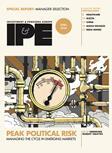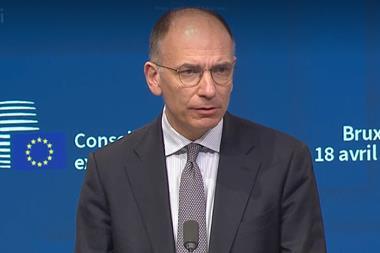KAZAKHSTAN – Kazakhstan's central bank has issued a temporary restriction on the asset classes into which compulsory pension funds can invest.
The news comes barely a week after president Nursultan Nazarbayev's instruction to the government and National Bank of Kazakhstan to merge the country's 11 second-pillar pension funds into a single entity.
In preparation for the merger, investments by both the state-guaranteed 'moderate' and 'conservative' portfolios have now been limited to Kazakh state securities, reverse REPOs and fine gold.
Previously, the funds had a substantially wider range of permitted assets.
Moderate portfolios could invest, within predefined limits, in central bank and second-tier Kazakh bank deposits, principal protected notes, foreign sovereign debt, non-government Kazakh agency and foreign investment-grade debt, mortgage bonds, local and foreign equities and depositary receipts, mutual and real estate funds listed on the Kazakhstan Stock Exchange, precious metals and derivatives.
Conservative portfolios had a more restrictive range, including a ban on stocks, but could invest, say, in deposits.
How the single fund will be managed and by whom remains the subject of intense speculation.
Yerbolat Dossayev, the economy and budget planning minister, noted that while the transformation would essentially involve merging all the individual accounts into a single fund, the asset management itself would be carried out by private companies.
The use of foreign asset managers has resurfaced since the notion of a single pension was first mooted, and then rapidly abandoned, in mid-2012.
While the president's current aim is to mobilise pension fund assets into local investment, the performance and behaviour of some of the funds has long caused disquiet, as has the expensive practice of members frequently changing funds.
Grigory Marchenko, long-standing governor of the National Bank of Kazakhstan and one of the architects of the 1998 pension reforms that established the three-pillar system, has stated that some of the smaller funds purchased securities, which subsequently defaulted, in affiliate companies, causing significant losses.
Marchenko, a long-time supporter of pension fund overseas diversification, has suggested that the new fund could invest up to half of assets abroad.
He has also criticised existing pension managers for investing the bulk of assets domestically.
While the central bank, which via its Financial Supervision Committee also acts as the pension sector's regulator, was initially mooted as managing the new fund, Marchenko stressed recently that this responsibility should be handed to the government – preferably the finance ministry – to avoid conflicts of interest.












No comments yet